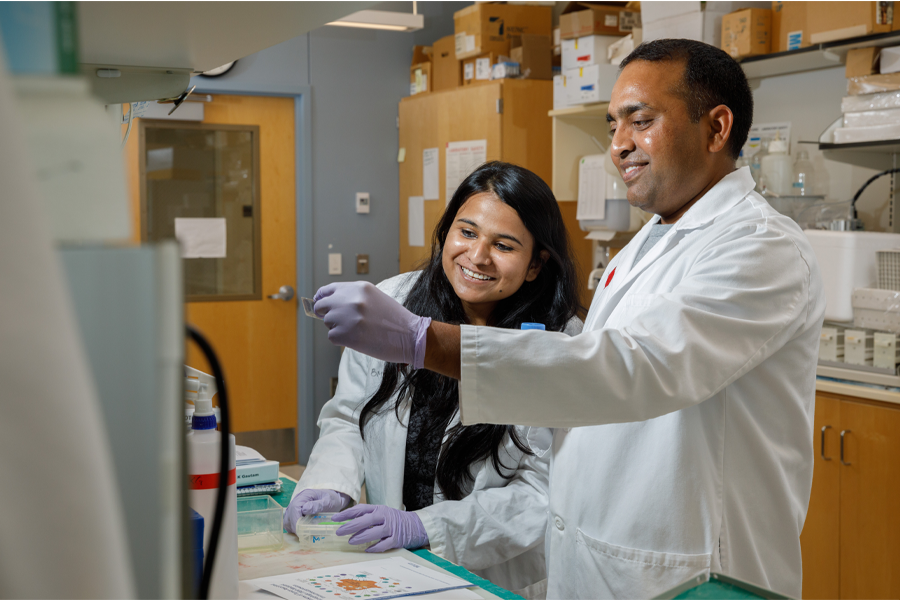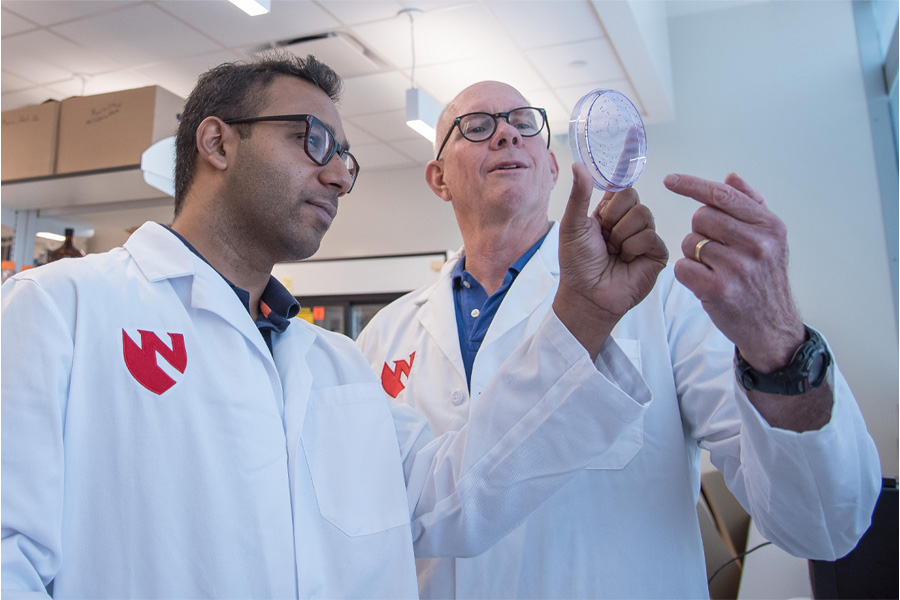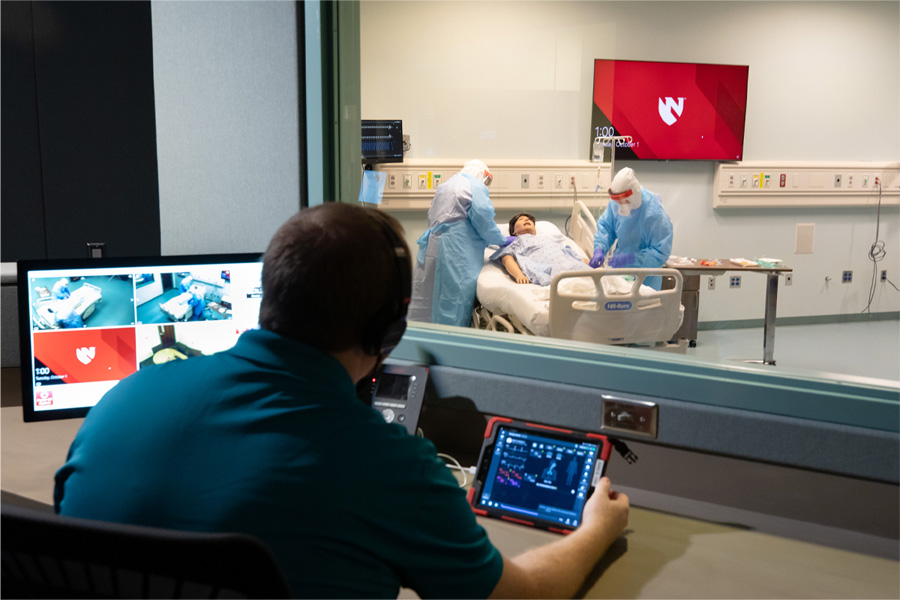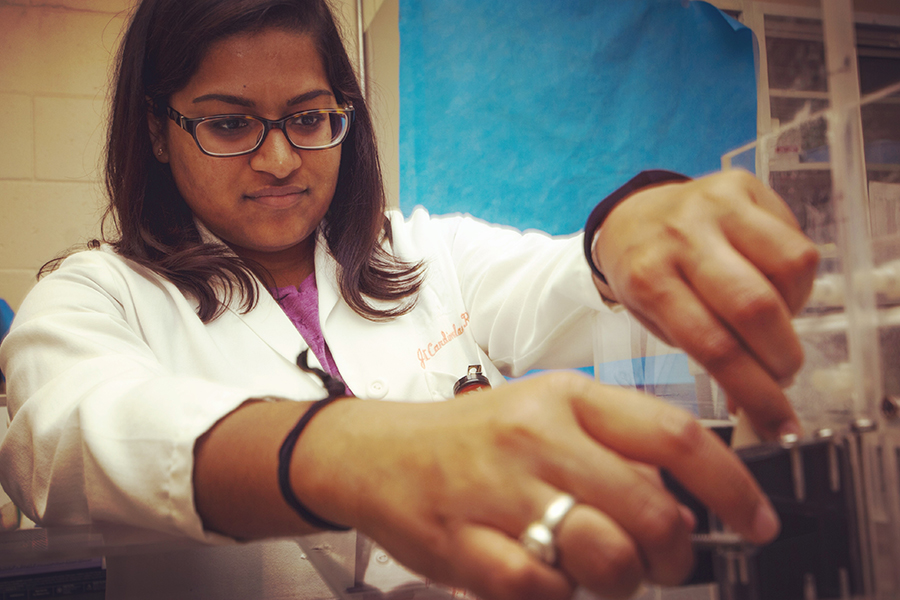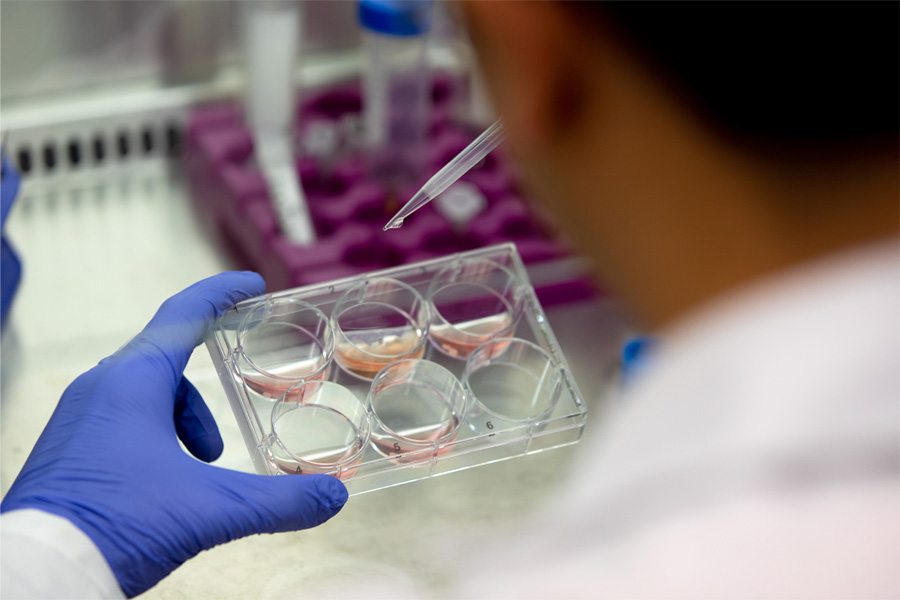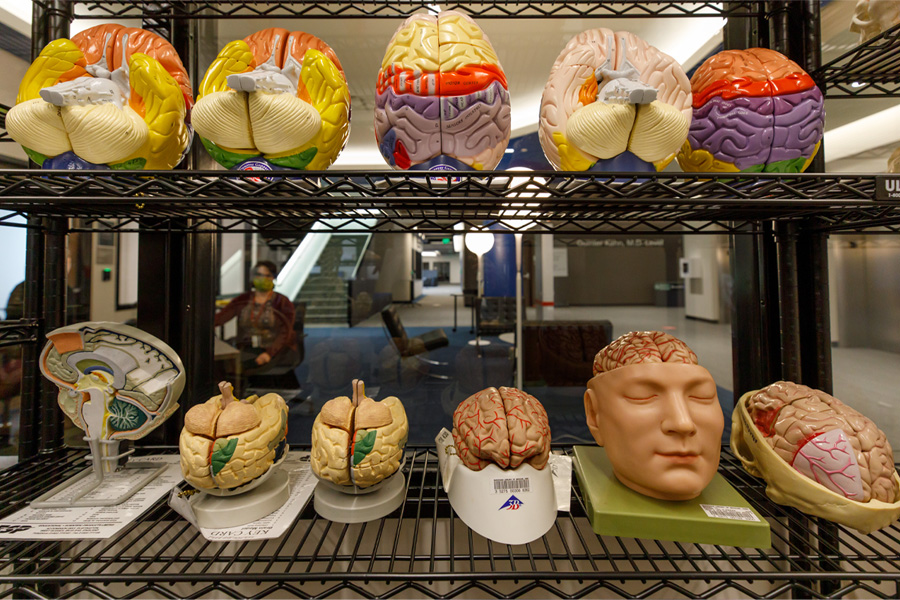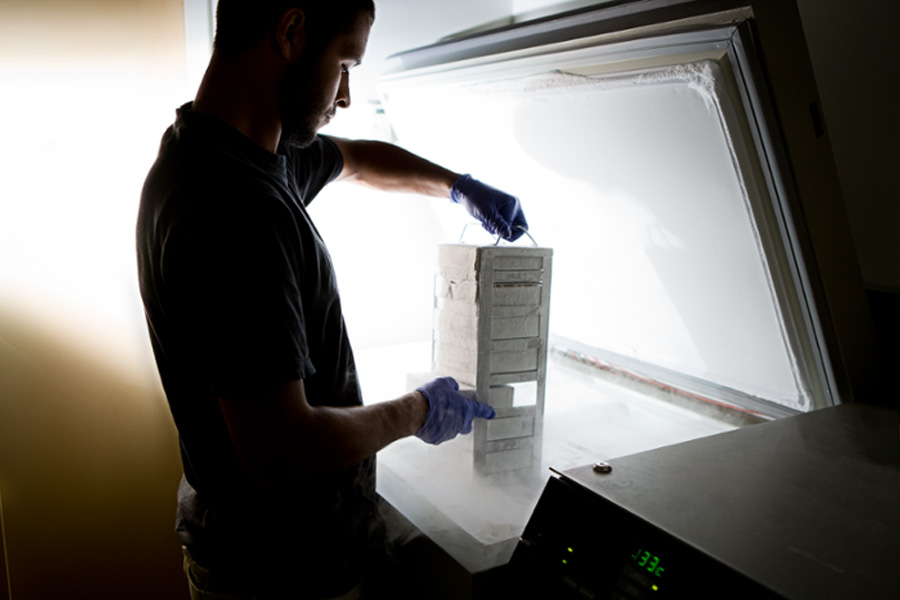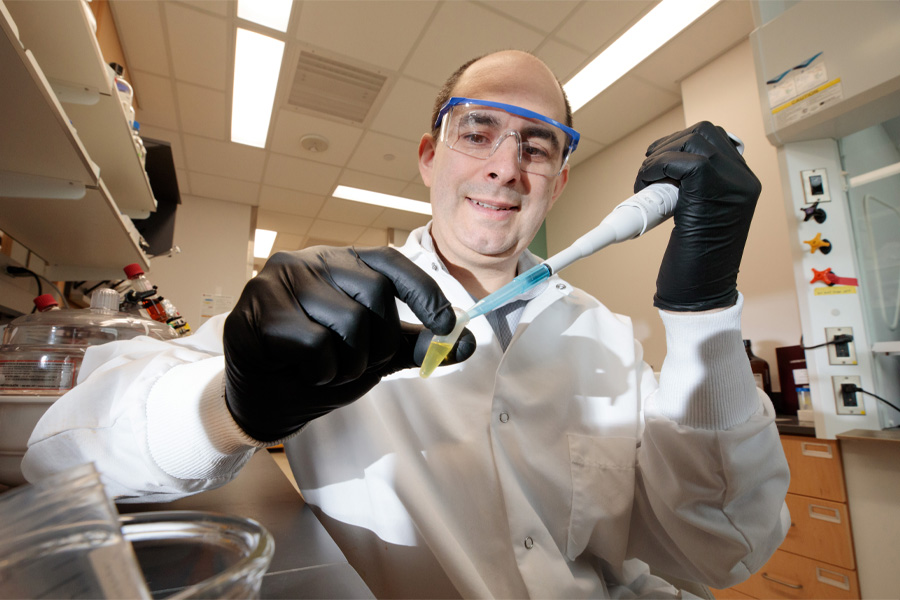Interdisciplinary Graduate Program in Biomedical Sciences (IGPBS)
The IGPBS PhD allows students to experience training in a variety of research laboratories before selecting their area of interest.
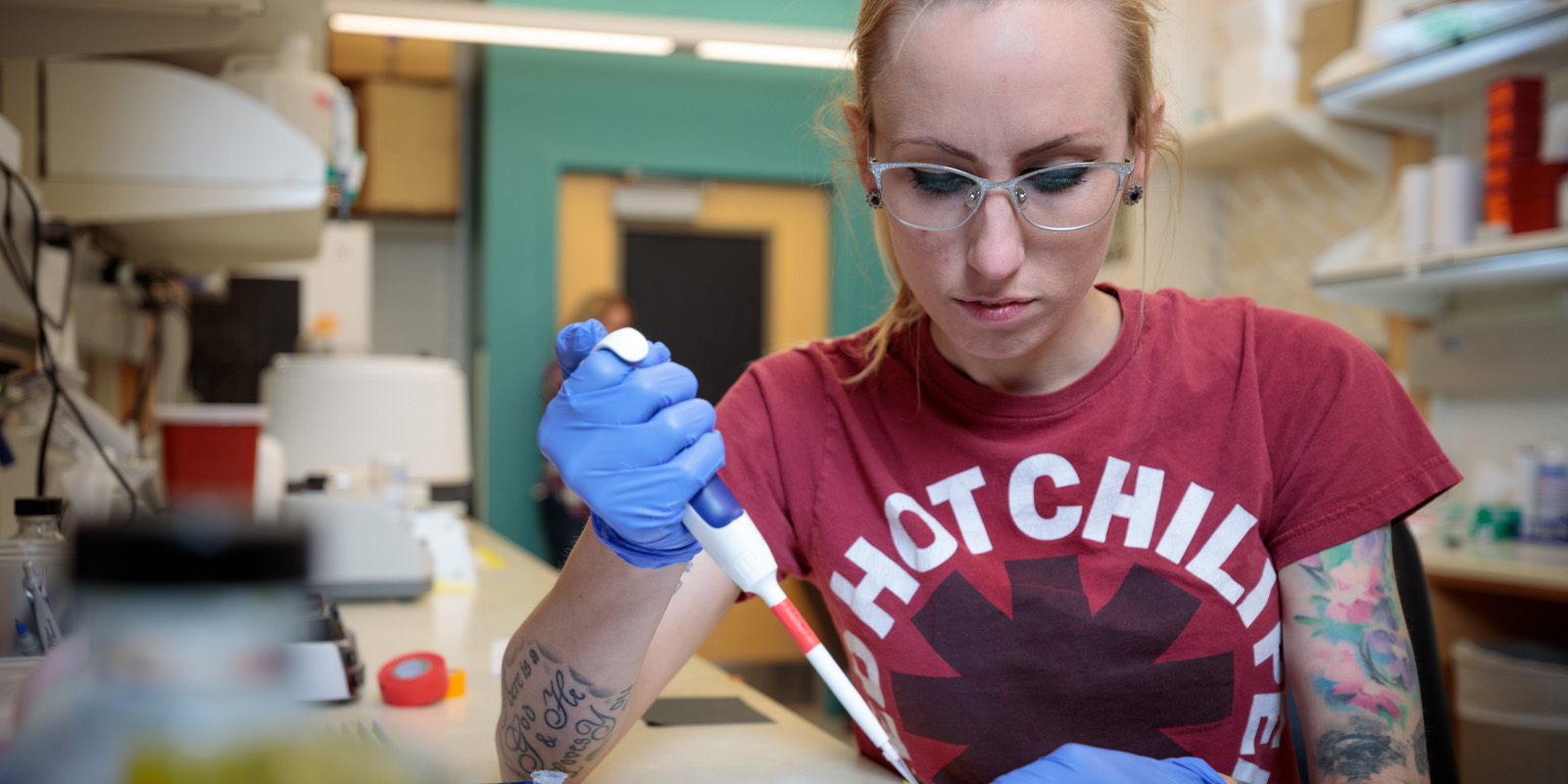
Why Study Interdisciplinary Biomedical Sciences?
The Interdisciplinary Graduate Program in Biomedical Sciences (IGPBS) consists of seven interdisciplinary doctoral programs. Each program provides students with a variety of research laboratories and research project options, along with strong multidisciplinary training within their area of interest.
The IGPBS provides students with a solid, broad-based training in interdisciplinary biomedical research. Students are first provided with a common core curriculum and then advanced interdisciplinary training in their area of interest. Each doctoral program area provides seminars and journal clubs in their research focus area.
Why Study Interdisciplinary Biomedical Sciences at UNMC?
The IGPBS and UNMC provide additional training to prepare students for a variety of job opportunities in academia, industry and other related fields. These professional development opportunities include the Business for Bioscientists Certificate Program along with Graduate Studies workshops and seminars.
Research resources include a wide variety of institution-supported research core facilities, many departmental research core facilities and the research resources of UNMC faculty. With the investment of more than $1 billion in infrastructure in the past several years, UNMC has many modern, well-equipped research laboratories. In the three new research towers alone, there are more than 300 laboratories concentrated on the west side of campus.
Program Snapshot
Course Load
Duration
Location
Start Dates
Program Highlights
The IGPBS consists of seven interdisciplinary doctoral programs with over 200 participating research faculty from 32 basic science and clinical departments. The seven doctoral programs that comprise the IGPBS are:
Multi-Program Students
Students can enroll in IGPBS before choosing a laboratory or a doctoral program, which provides the opportunity for research rotations in any of the participating laboratories on campus. Multi-program students complete a first semester common core curriculum, after which they commit to one of the seven doctoral programs and complete advanced interdisciplinary training in their field of interest.
Single-Program Students
Students can also enter IGPBS committed to an individual doctoral program. Single-program students rotate among the laboratories in that doctoral program and follow the first semester curriculum of that doctoral program.
Career Outcomes
Former students who have received their PhD at UNMC currently hold academic positions at a variety of universities and have positions at a variety of biotechnology and pharmaceutical companies.
3 years after earning their PhD:
- 33% of graduates are working in post-secondary education/teaching
- 32% of graduates are pursuing further training
- 16% of graduates are working in business/industry
8 years after earning their PhD;
- 33% of graduates are working in business/industry
- 28% of graduates are working at a research university
- 28% are working in post-secondary education/teaching
15 years after earning their PhD:
- 43% of graduates are working in post-secondary education/teaching
- 38% of graduates are working in business/industry
- 14% of graduates are working at a research university
In a recent survey by the Council of Graduate Schools:
- 94% of alumni have a job related to their PhD training
- 100% of alumni felt they were prepared for their current job by their PhD training
Alumni Testimonial: Christopher M. Thompson, PhD
"I thought I wanted to work with cancer therapeutics. But in my first semester, I was able to rotate through a neuroscience lab and an immunology lab. Ultimately, I realized I was most interested in cancer immunology. Without the IGPBS, I might have missed this interest and not learned the skills required to pursue it."
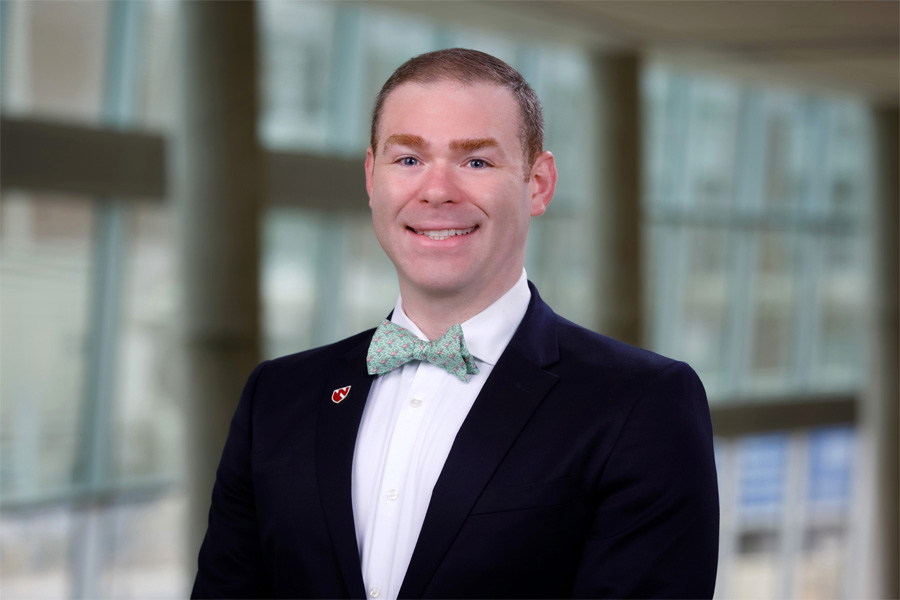
Related Programs
Students who are interested in the IGPBS program may also wish to explore:
